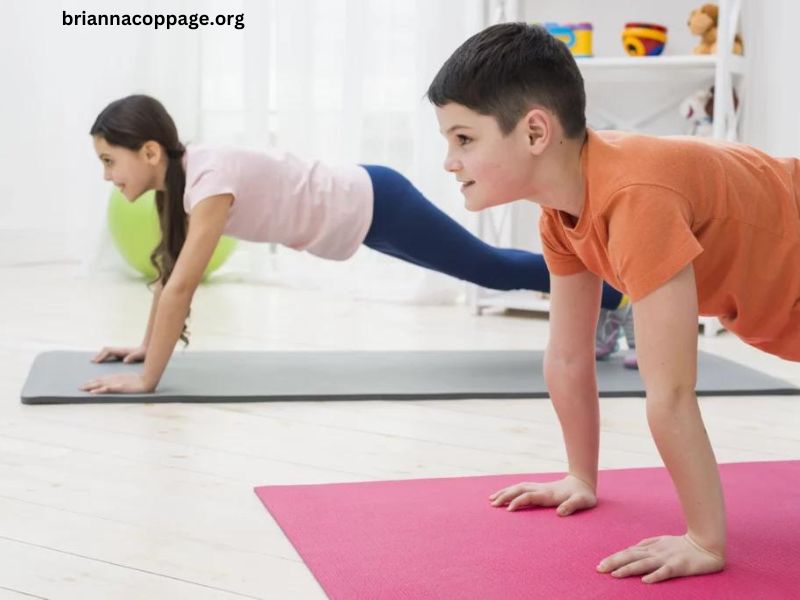Going to the gym can be an essential part of a healthy lifestyle, contributing to physical fitness, mental well-being, and social interaction. However, many people wonder: how old do you have to be to join a gym? The answer is not straightforward and varies depending on several factors, including the type of gym, location, and the individual’s maturity and ability to follow safety protocols. This article will explore the various age requirements, the benefits of gym workouts for different age groups, and important considerations for young gym-goers.
Age Requirements for Gyms
General Guidelines
Most gyms have specific age requirements that vary based on the facilities they offer. Generally, the following age guidelines are common:
- Under 12 Years Old: Many gyms do not allow children under 12 to work out unsupervised. Some may offer kids’ programs, but these typically focus on fun and fitness rather than traditional weightlifting or gym workouts.
- Ages 12 to 15: Many gyms allow individuals aged 12 to 15 to join with parental consent. However, they may need to complete an orientation session or a fitness class to learn proper exercise techniques and gym etiquette. Supervision by a parent or guardian may still be required.
- Ages 16 and Older: Most gyms permit individuals aged 16 and older to join without restrictions. They are often allowed to use all equipment and facilities, although some gyms may still require parental consent for those under 18.
Variations by Gym Type
- Commercial Gyms: Chains like Planet Fitness, LA Fitness, and Gold’s Gym usually have age policies similar to the ones mentioned above. They might offer youth memberships or programs specifically designed for teens.
- Specialized Fitness Centers: Facilities like martial arts studios or dance schools may have different age requirements, often based on the specific type of training offered rather than a general gym policy.
- Community Centers: These often have flexible age policies, encouraging family participation. Many community centers have youth programs that introduce children to fitness in a more engaging way.
- High Schools and Colleges: These institutions may have gyms that allow student access, often with lower age limits, provided students are enrolled in the school.
Benefits of Going to the Gym at a Young Age
Physical Health
- Developing Healthy Habits: Introducing gym workouts at a young age can instill lifelong habits of regular exercise, which is essential for maintaining health and preventing chronic diseases.
- Strength Building: Engaging in strength training can help young people develop stronger bones, improve muscle tone, and enhance overall athletic performance. Contrary to some myths, when done correctly, strength training is safe for adolescents.
- Improved Coordination and Balance: Regular exercise improves motor skills, coordination, and balance, which are particularly important during the developmental years.
Mental and Emotional Benefits
- Boosting Self-Esteem: Achieving fitness goals, whether small or large, can significantly boost a young person’s confidence and self-esteem.
- Stress Relief: Exercise is a well-known stress reliever. For teens facing academic and social pressures, the gym can serve as a healthy outlet for stress and anxiety.
- Social Interaction: Joining a gym can provide opportunities to meet peers with similar interests, fostering friendships and a sense of community.
Academic Performance
Numerous studies suggest a link between physical activity and improved academic performance. Exercise increases blood flow to the brain, enhancing cognitive function, concentration, and memory—crucial components for academic success.
Considerations for Young Gym-Goers
Safety First
- Proper Supervision: Young gym-goers should always be supervised, especially when using unfamiliar equipment. Parents or guardians should ensure that children are aware of the gym’s rules and safety protocols.
- Learning Correct Techniques: It’s essential for young individuals to learn the proper techniques for using gym equipment to prevent injuries. Many gyms offer personal training or orientation sessions to teach safe practices.
- Listening to Their Bodies: Children and teens should be taught to listen to their bodies and recognize when they are pushing themselves too hard. Rest and recovery are crucial for young athletes.
Age-Appropriate Workouts
- Tailored Programs: Gyms often offer age-appropriate workout programs that focus on fun and skill development rather than intense training. These programs can include circuit training, group classes, and team sports.
- Variety of Activities: Encouraging a range of activities can prevent burnout and promote overall fitness. Young individuals should have the opportunity to try different workouts, including cardio, strength training, and flexibility exercises.
Nutrition and Lifestyle
- Healthy Eating: Alongside regular exercise, proper nutrition is essential for young people. Gyms can offer resources on healthy eating habits and nutrition education.
- Balance with Other Activities: While going to the gym is beneficial, it’s important for young individuals to maintain a balance between fitness, academics, and social life. Encouraging a well-rounded lifestyle fosters long-term well-being.
Parental Guidance and Support
Parents play a crucial role in a young person’s fitness journey. Here are some ways parents can support their children in accessing the gym:
- Researching Options: Parents should research local gyms to find one that offers a welcoming environment for young individuals. Considerations should include safety, age-appropriate programs, and staff qualifications.
- Setting Goals Together: Engaging in goal-setting discussions can help children identify their fitness aspirations and track their progress.
- Participating Together: Joining the gym alongside their child can foster a sense of camaraderie and accountability. This shared experience can be a great way to bond and model healthy habits.
- Encouraging a Positive Mindset: It’s essential for parents to promote a healthy attitude towards fitness. Emphasizing that exercise should be enjoyable and not merely a means to achieve a certain body type can help cultivate a positive relationship with fitness.
Conclusion
The question of how old you have to be to go to the gym is nuanced, with various factors influencing age requirements. While many gyms allow young individuals to join from the age of 12, the focus should always be on safety, proper training, and the individual’s readiness for gym workouts. The benefits of exercise are immense, particularly for young people, as it promotes physical health, mental well-being, and social connections.
With the right guidance, support, and environment, going to the gym can be a positive and empowering experience for individuals of all ages. Whether you’re a parent considering gym options for your child or a young person eager to start your fitness journey, understanding the nuances of age requirements and best practices can help ensure a successful and enjoyable experience at the gym.






